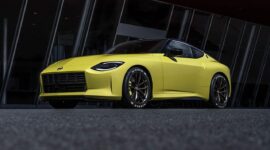Chinese Tesla rival Xpeng Motors files for New York IPO
Chinese electric car start-up Xpeng Motors has filed for an Initial Public Offering (IPO) on the New York Stock Exchange. While the company did not disclose how many Class A ordinary shares it would sell, the company said it would sell 429,846,136 class B ordinary shares. The company also said it plans to raise a placeholder amount of $100 million, a figure that will likely change.
Each Class A ordinary share will be entitled to one vote while each Class B ordinary share will give the holder 10 votes. The filing comes after Xpeng raised a further $400 million from Alibaba, one of its biggest shareholders, the Qatar Investment Authority (QIA), and Abu Dhabi sovereign wealth fund Mubadala. QIA and Mubadala both invested $100 million each as part of that round.
Xpeng’s push for a New York IPO comes amid escalating tensions between the United States and China that have threatened Chinese firms listing on Wall Street. The IPO will give the company another injection of cash as it faces tough competition in China from a number of players including Li Auto, which recently listed in the United States, WM Motor, and Nio. But the company also competes with Tesla, which has looked to boost its presence in China with a Shanghai factory.
Xpeng currently has two cars on the market, the G3 SUV and the P7 sedan.
Earlier this year, Tesla began rolling out its Model 3 sedan made in the Shanghai factory to consumers in China. The P7 sedan competes with Tesla’s Model 3. G3 production began in November 2018 and as of July 31, 2020, Xpeng said it had delivered 18,741 units to customers. The P7 started to roll out to customers in May this year and as of July 31, the company had delivered 1,966 units of the vehicle to customers.
The company is planning to launch a third electric vehicle sedan in 2021. Xpeng, which was founded in 2015, has tried to differentiate itself from rivals by talking up its investment in software. The company has a feature called XPILOT which gives cars some semi-autonomous driving features like automated parking. XPILOT is developed in-house and the company is positioning it as a rival to Tesla’s Autopilot.
In the six months ended June 30, Xpeng brought in 1 billion yuan ($141.9 million) in revenue, down from 1.23 billion yuan in the same period last year. Some of the company’s stores were forced to close during the height of the covid pandemic in China in February and March. However, net loss for the period shrank to 795.8 million yuan from 1.92 billion during the first six months of 2019.
China’s electric car market has been supported by favorable policies over the past few years including subsidies.
Some new energy vehicle subsidies and tax break policies that had been set to expire this year were extended to 2022. Xpeng flagged any elimination or reduction of these policies as having the potential to “adversely affect” its business. The trade war between the United States and China and subsequent tariffs could also hit the company. Although the company does not currently export any of its smart electric vehicles to the United States, it is not yet clear what impact these tariff negotiations may have or what further actions the governments may take, and tariffs could potentially impact its raw material prices.
Xpeng also addressed the legislation passed by the United States Senate in May that would increase scrutiny on Chinese firms listed on American exchanges with the potential for delistings for some foreign firms. If any such deliberations were to materialize, the resulting legislation may have a material and adverse impact on the stock performance of China-based issuers listed in the United States. It is unclear if this proposed legislation would be enacted.
Credit Suisse, JPMorgan, and Bank of America, are the underwriters for the IPO.

